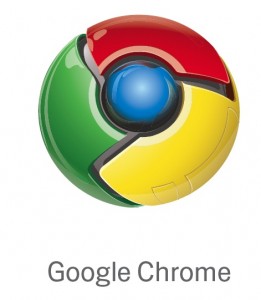 There’s a lot of talk (very good analysis actually) about Chrome in terms of functionality and technology. Sure, what’s under the hood is interesting and I’m intrigued by the speed tests. Yet, at the end of the day, I believe Chrome is really all about search.
There’s a lot of talk (very good analysis actually) about Chrome in terms of functionality and technology. Sure, what’s under the hood is interesting and I’m intrigued by the speed tests. Yet, at the end of the day, I believe Chrome is really all about search.
Let’s first look at two core components that were absent from the launch. There are no add-ons and there is no Mac version. This tells me that the competitive target is not Firefox or Safari. It tells me that Chrome is aimed at converting more WIndows/IE users to Windows/Chrome users. (Yes, yes, it has an open API but that’s different then supporting add-ons a la Firefox.)
Next let’s look at how they’re marketing Chrome.
Google Chrome is a browser that combines a minimal design with sophisticated technology to make the web faster, safer, and easier.
One box for everything
Type in the address bar and get suggestions for both search and web pages.Thumbnails of your top sites
Access your favorite pages instantly with lightning speed from any new tab.Shortcuts for your apps
Get desktop shortcuts to launch your favorite web applications.
Faster. Safer. Easier. One box for everything. Shortcuts. I believe the messaging is aimed not at the early adopter but at the early majority instead. While the technology is sophisticated, the end product is simplistic.
A legion of folks exist out there who don’t even know they have a choice in how they surf the Internet. People aren’t going to be easily swayed by a relatively unknown brand like Firefox. But Google? Hey now, they know Google. They trust Google. They use Google!
Sure they can import their settings, but how many of them will and how many of them even knew about their settings in the first place? Google has disrupted inertia and created an artificial switching window. During this critical time, I believe more will choose to use Google as their default search engine. There is a subtle psychological pressure exerted by using Google’s browser that will encourage users to use Google as their search engine.
One could argue that many of these same users already use Google. And that’s true. But they’re also confused about exactly what to do when they want to search or go to a website. Remember that the top search terms in August were ebay and myspace. So these people could be accidentally using IE’s default search engine from time to time.
And that’s where the omnibox (aka ‘the god box’) comes in. Chrome’s one box for everything appeals to the same user who is confused about when they search and when they type in a website address. If my supposition above is correct, then Google suddenly has far more control over searches and, even more far reaching, directing users to specific destinations.
Google Chrome is about taking more of the search market away from Microsoft and Yahoo. As such, it is one of the few Google initiatives that I believe is perfectly aligned with their core business.
The Next Post: AIG Irony
The Previous Post: Tabbed Browsing Changes Everything

2 trackbacks/pingbacks
Sorry, comments for this entry are closed at this time.
You can follow any responses to this entry via its RSS comments feed.